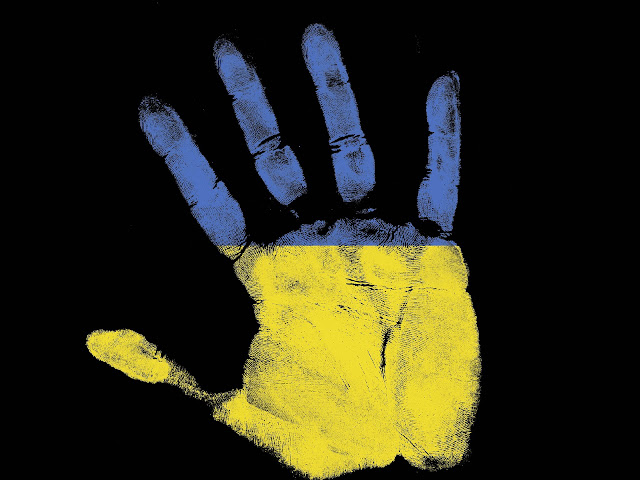EUROPE: The Cost of Ukraine Falling
The past few weeks have been rough for Ukraine. At first, there was hope that President Trump might start shipping more weapons (especially Patriot Missiles) to Ukraine, after the nice interaction he had with a Ukrainian BBC correspondent at the NATO Summit. But he didn’t. Instead, America announced a few days ago that they will halt all military shipments to Ukraine, citing shortages of their own stock
In this blog post, we’ll explore the broader consequences for Europe—and the world—if Ukraine falls. We've touched on some of these points before, but this time, I want to go deeper.
TRUMP VS PUTIN
The relationship between Trump and Putin is, to say the least, confusing. On one hand, they’re chummy and full of compliments. On the other, Trump calls Putin “crazy” and insists he doesn’t want peace. His mood seems to change by the day—and unfortunately, so do his decisions. But is that really something we can trust or consider?
Putin, by contrast, is cold, calculated, and ever the KGB agent. He knows exactly how to play Trump like a fiddle. That’s not good news for us in Europe. In recent days, Putin hasn’t even bothered to hide his intentions in Ukraine. Once again, we’re hearing the same message: Russians and Ukrainians are “one people,” and wherever Russian soldiers step—that’s Russia.
In a strange way, this blatant messaging might be a good thing. It’s finally starting to get through to Trump. Slowly, but clearly. This dangerous dance between Trump and Putin is just one part of the story. Then there’s Xi Jinping—and Beijing’s not-so-subtle signal that they can’t afford to let Russia lose this war.
CHINA'S ROLE
China’s role in this conflict is subtle but massively important. While Beijing hasn’t sent troops or openly armed Russia, it’s been providing economic lifelines and diplomatic cover since the beginning. Chinese companies continue to supply dual-use goods—things that aren’t technically weapons but are still essential to Russia’s war machine. Meanwhile, at the U.N. and in global forums, China sticks to its usual vague language about peace, sovereignty, and "balanced solutions"—while doing nothing to actually pressure Putin to stop.
More importantly, China has made it clear it cannot afford for Russia to lose. A Russian defeat would weaken Beijing’s vision of a new world order—one where the West doesn’t get to call all the shots. And if Putin falls, it sends a message to every autocrat that military aggression won’t work anymore. That’s a message Xi doesn’t want to acknowledge.
Why doesn’t Beijing want to hear this? Because if Russia loses, it shatters the illusion that authoritarian power backed by brute force can redraw borders or bend the world to its will. Xi has his own ambitions—Taiwan being the most obvious—and a Russian failure would be a warning shot that such moves come with real consequences. It would embolden Western alliances, strengthen NATO, and possibly trigger sanctions or resistance that could one day be aimed at China itself. For Xi, a Russian defeat isn't just about Putin—it’s about the viability of his own long-term strategy.
So while China may not be fighting on the frontlines, make no mistake: it’s deeply invested in the outcome, and its support is helping to drag this war out even longer.
WHAT ABOUT EUROPE?
As discussed previously, the U.S. is pivoting toward a more Pacific-focused and increasingly isolationist defense policy. This shift means Europe must prepare to stand on its own. Increased defense spending is a start—but unity is even more critical. And right now, that unity is lacking. Southern European countries—and their populations—are often detached from the harsh realities faced by nations sharing a border with Russia.
This growing divide in perspectives makes reaching a cohesive strategy painfully difficult. Germany remains hesitant, torn over whether to fully commit to higher defense spending. France is distracted by its own domestic issues, and the UK looks closer to political collapse than stability. Meanwhile, Baltic and Eastern European countries are sounding the alarm, but not everyone is listening. The lack of urgency in parts of the continent is not just frustrating—it's dangerous.
WHAT IS THE SOLUTION?
The solution isn’t simple, but it starts with leadership and clarity. Europe needs a unified voice—a clear strategy that isn’t constantly shifting with domestic politics. That means tough conversations in Brussels, more shared military commitments, and an honest reckoning with the threat at the gates. Because if Ukraine falls and the U.S. stays on the sidelines, the buffer disappears—and then the front line is Europe itself.
That reality needs to cut through the political noise. European leaders must stop treating defense as a short-term electoral issue and start viewing it as the foundation of the continent’s stability. Publics need to be brought into the conversation—not with fear-mongering, but with honesty about what’s at stake. This is not just about tanks and budgets; it’s about values, sovereignty, and the future of Europe as a free and secure region. The window to act together is still open, but it’s narrowing fast.
CONCLUSION
If Ukraine falls, the war won’t stay at its borders. Europe’s eastern flank will become the next pressure point, and the illusion of distance will vanish. Every delay, every division within the EU, gives Putin more room to maneuver—and redraw the map.
Europe must wake up. This is no longer about support; it’s about survival. Unity, urgency, and a serious commitment to defense are no longer optional—they’re the bare minimum.




Comments
Post a Comment